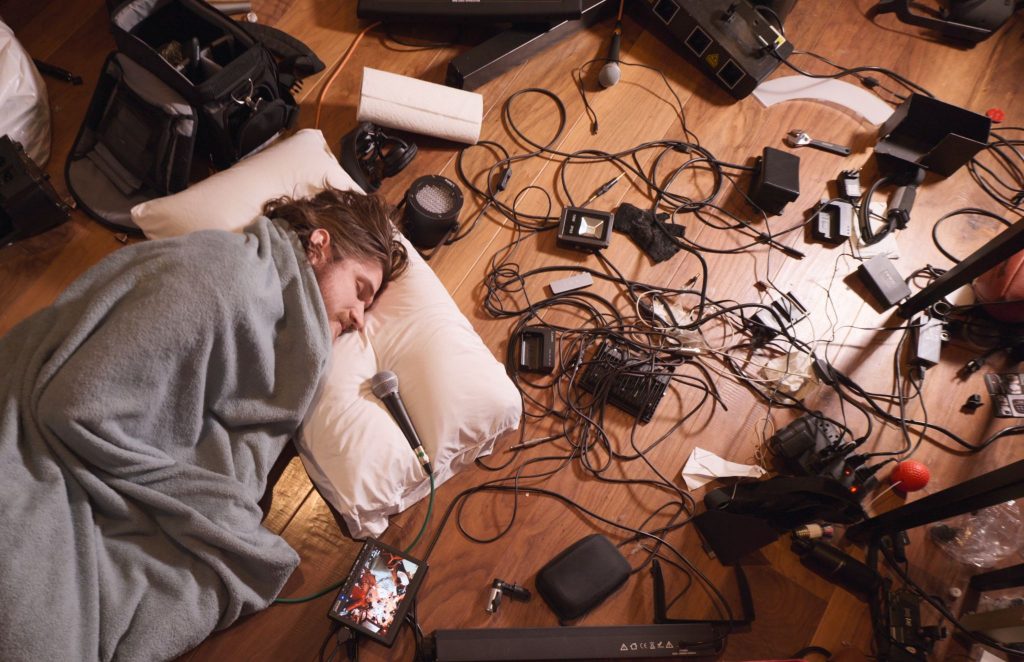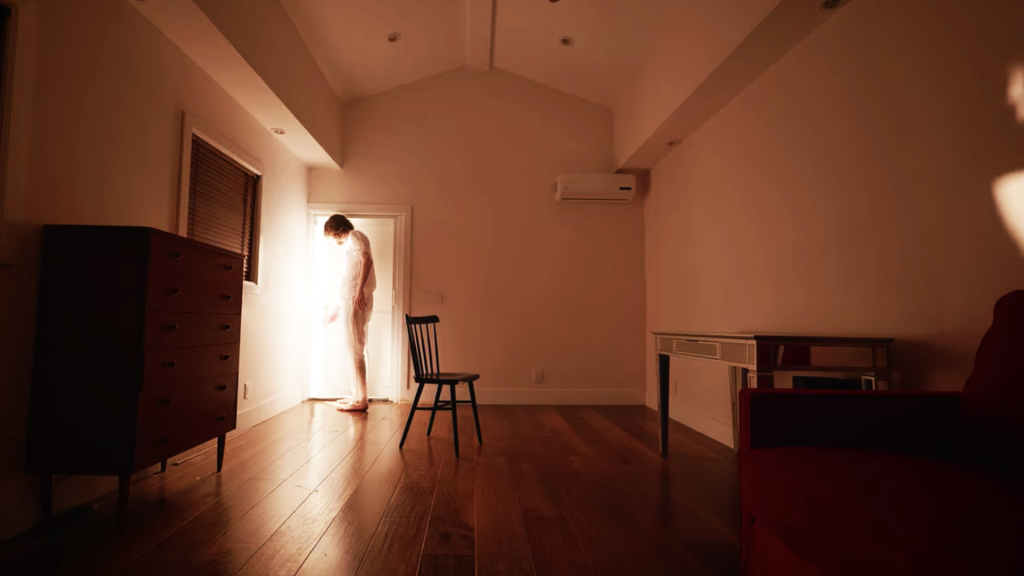The COVID pandemic has brought us a lot of interesting content like celebs live streaming concerts from their bedrooms, readings scripts, and now there’s a whole entire Netflix special about a deeply depressed man stuck inside his house. Stand-up comedian Bo Burnham has spent over a year and single-handedly created an hour and a half music/comedy show exploring issues so deep and personal he deserves an award.
Burnham started his career all the way back in 2006, went through a lot of live shows over the years, became one of the most popular stand-up comedians, and then dropped everything at the peak of his fame. His mental health hit the ATL, or the all-time low, to the point where he started getting panic attacks right at the concerts. So Bo decided to take a long hiatus during which he worked on his issues and was ready to return to live performances in 2020. But you know that 2020 was basically dead in terms of live shows, so Bo said “screw it” and started working on his show Inside. His new songs are still full of satire and irony, but those of us who’ve been “inside” for two years will probably be crying-laughing.

The show has layers upon layers, and the perfect illustration for this is the Unpaid Intern song, where Bo sings a quick funky song, then starts reacting to it, you know, as they do it on the internet. After the first reaction finished, he immediately starts reacting to the reaction, and the bit goes on and on. During this masterfully crafted cacophony, the story of exploitation turns into a truth bomb about using self-deprecating rhetoric as a defense mechanism against other people’s criticism. The format of this bit helps us understand what’s going on, but some of his other scenes have more layers than you may think.

Right off the bat, Netflix warns the viewers that there are heavy subjects, like depression and contemplating suicide up ahead. And the further we go into the special, the darker the atmosphere becomes. Burnham combines musical numbers with episodes of apathy, outbursts of anger, and his own breakdowns, showing us it’s not always puppies and rainbows. It all feels too real, and that’s because it’s sincere and comes from a man trying to fix himself and the world around him through jokes and sarcastic songs.

Burnham speaks openly about what he feels. In the song “Sh*t,” which by the way, could literally be the COVID’s anthem if that crap needed one, he goes through his messed up routine: waking up late, hasn’t showered for days, hates his own reflection in the mirror, which all combined makes him feel like crap. This is not just a lazy guy’s life; these are the signs of a depressive state. In “That Funny Feeling,” Bo pretty much asks the viewers to Google derealization and depersonalization but warns us that we won’t like the results. At the same time, in his depression, Burnham is insanely productive. You can see this especially clearly in the “White Woman’s Instagram” song. I swear, he’s made so many props, costumes, scenes, and decorations for that 4-minute bit it’s unbelievable.

Each of his songs is laced with light, quirky jokes, so you don’t even expect it when the deep stuff hits. Remember the “Welcome to the Internet” song? It starts off with an invitation: “Welcome to the Internet, have a look around,” — it’s almost like Bo’s trying to hook you up on this new drug. And after you’re hooked, it’s evil laughter time! First, your momma let you use her iPad, and now your soul belongs to the big corporations — all according to plan.

As you have gathered, nothing is what it seems at first glance with Bo Burnham’s shows, and that’s a great thing. We don’t need another Justin Bieber, honestly. As for Bo, I have a good feeling that he made “Inside” not so much for the audience but as a therapy for himself, and after seeing the whole thing, I can safely assume that he should be doing much better now.

